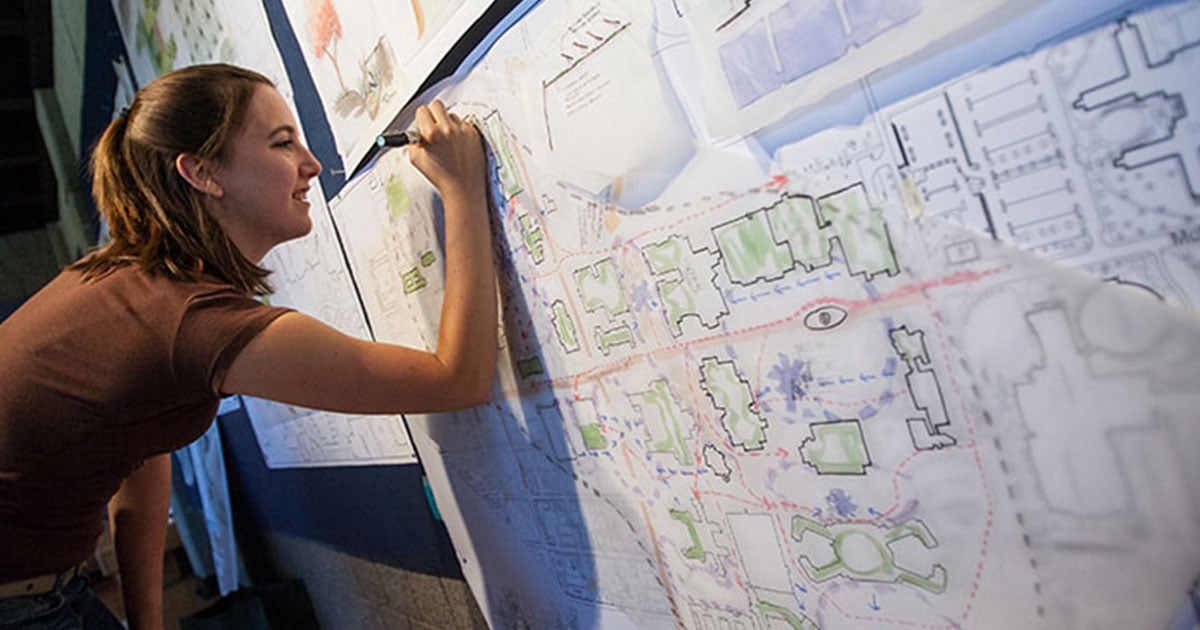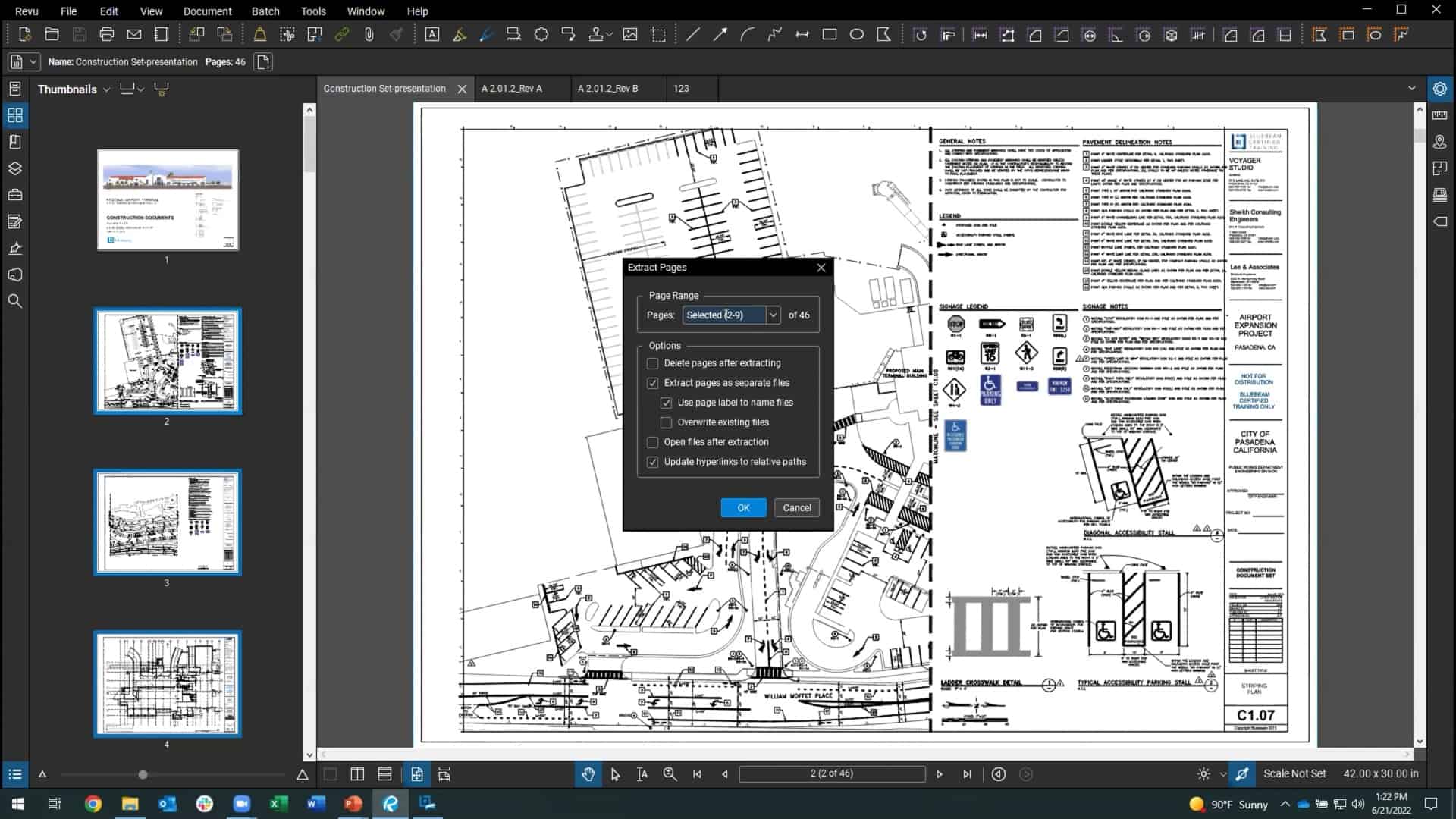
Urban planning is rapidly changing with climate change, population growth, and digital innovation. The U.S. Bureau of Labor Statistics projects a 4% growth in employment of urban and regional planners from 2026 to 2031, with about 3,800 openings expected each year. This demand is especially strong in cities engaged in sustainable development, transport infrastructure, and smart city projects.
As cities become smart and green, a professional with a relevant urban planning degree, practical tools, and a vision for community development will be in high demand. Whether you're just starting out or transitioning careers, understanding how to become an urban planner is crucial for success in this growing field.
Who is an Urban Planner?
An urban planner is a specialist committed to designing the physical structure and operation of towns, cities, and metropolitan regions through well-researched development plans and land use strategies. Their primary goal is to create spaces that are sustainable, functional, inclusive, and resilient to the challenges of urban growth and environmental change.
A key aspect of modern planning involves leveraging technology. Tools like Urban Design & Planning Software allow planners to simulate urban development, optimise land use, analyze demographic data, and visualise infrastructure scenarios in real-time. Other tools like BIM for Urban Designers further improve collaboration by merging architectural, infrastructural, and environmental aspects in one digital model. Such technologies assist planners in making informed decisions and coordinating large urban projects more effectively.
Key Responsibilities & Duties
- Analyzing data from population censuses and environmental studies
- Conducting field investigations and feasibility studies
- Reviewing zoning and building codes
- Addressing issues like housing, infrastructure, transport, and environmental regulations
- Engaging with communities through public forums and consultations
- Advising on policy related to urban development
Also Read - What does an Urban Planner do? Job Role & Top Softwares!
How to Become an Urban Planner? Education & Key Skills

If you're wondering what skills do you need to be an urban planner, you need both technical knowledge and strong communication skills. The essential skills of an urban planner are listed below:
Qualification
As a starting point for your urban planning career, the first step is achieving the proper academic qualification. Below is the guide on how to be an urban planner via the educational route:
- Bachelor’s Degree: Pursue an undergraduate degree in urban studies, architecture, geography, civil engineering, or environmental design.
- Urban Planning Degree: A Master's in Urban Planning (MUP) or an equivalent specialized urban planning degree is generally demanded by most employers. These degrees are usually accredited by organizations such as the Planning Accreditation Board (PAB) in the U.S. or AICTE/COA in India.
- Certifications: Relevant certifications like AICP (American Institute of Certified Planners) or GATE scores (in India) enhance employability.
Technical Skills
The following are the major technical skills required in the profession:
1. Geographic Information Systems (GIS)
GIS is used for spatial analysis and mapping. GIS assists planners in visualizing patterns of land use, zoning, transportation networks, and environmental conditions in a geographical context to aid informed decision-making.
2. Design and Modelling Software (AutoCAD, SketchUp)
Tools like AutoCAD and SketchUp allow urban planners to create 2D plans and 3D models for visualising projects. These platforms aid in the conceptualisation and communication of urban layouts and infrastructure proposals.
3. Data Analysis Tools (UrbanSim, SPSS, Excel, R)
Urban planning involves analysing demographic, economic, and spatial data. Software like UrbanSim, SPSS, Excel, and R enables planners to assess trends, forecast growth, and simulate development scenarios accurately.
4. Land-Use Planning Software
These tools assist in evaluating and regulating how land is used across urban and regional areas. They ensure sustainable development, efficient resource allocation, and alignment with local policies and community needs.
Soft Skills
Urban planning isn't just about design, it is also about communication and leadership. Wondering what skills do you need to be an urban planner in the soft skills department? Here they are:
- Critical thinking and problem-solving: Break down complicated issues and identify effective solutions that can be applied in real-world settings.
- Effective communication: Communicate ideas clearly to teams, communities, and decision-makers.
- Community engagement and public speaking: Engage the public and present with confidence to establish trust and consensus.
- Collaboration and stakeholder management: Work across interests and manage relationships to keep projects advancing.
- Ethical decision-making: Make responsible, fair, and community-based choices.
- Time and project management: Plan effectively, stick to timelines, and produce output under pressure.
Suggested Read - How to Become an Urban Designer: Know Top Skills & Training Needed!
Urban Planner Salary Around the World

An urban planner average salary may differ from one country to another, depending on experience, location, and the type of work they do. Here's the relative comparison of how much urban planners generally make around the world:
|
Region |
Junior Urban Planner Salary |
Senior Urban Planner Salary |
Average Salary |
|
India |
|||
|
USA |
|||
|
Middle East |
These figures reflect the urban planner pay, based on experience and region. The urban regional planner salary can vary depending on the sector (public or private), skills, and project scale.
Also Read - How BIM is Used in Urban Planning? And Upskill Yourself!
Job Opportunities for Urban Planners

The urban-regional planner salary may vary according to sectors (public or private), skills, and the scale of the project involved.
Common Job Roles
The common jobs available in the urban planning field in 2026 include:
-
Urban Planner: Designs and manages sustainable city and town development plans.
-
Regional Planner: Coordinates large-scale infrastructure across multiple municipalities.
-
Transportation Planner: Develops transit, road, and pedestrian mobility systems.
-
Land Use Planner: Allocates land for residential, commercial, industrial, and recreational use.
-
Zoning Officer: Enforces zoning laws and development compliance.
-
GIS Analyst: Uses geospatial data to aid planning decisions.
-
City Planning Consultant: Advises on urban development strategies and policies.
-
Housing Policy Analyst: Develops policies on housing affordability and accessibility.
-
Sustainability Coordinator: Incorporates environmental goals into urban plans.
Career Hierarchy for Urban Planner
These roles cover a spectrum of urban planner jobs with increasing responsibilities and compensation.
-
Junior Urban Planner – Assists in data collection, basic research, and drafting reports
-
Urban Planner – Manages projects, zoning regulations, and planning documentation
-
Senior Urban Planner – Leads urban development projects, mentors junior planners, coordinates with government agencies
-
Principal Planner – Strategic oversight, policy-making, and managing multiple urban plans
-
Director of Planning / City Planner – Top-level administrative role, directing regional or municipal development
Conclusion
Urban planning is a dynamic and future-ready profession offering a meaningful way to shape smarter, more sustainable cities. For those exploring how to become an urban planner, the journey begins with the right urban planning degree, followed by continuous skill development and industry exposure. Whether you're just starting out or considering becoming an urban planner later in your career, the field welcomes individuals who are visionary, adaptable, and collaborative.
To grow your expertise and stay competitive, advanced programs like the BIM Professional Course for Civil Engineers by Novatr provide next-gen tools to amplify your role in urban development.
Check out our resource page for expert advice, industry insights, and practical steps to build a solid foundation in urban planning and make a lasting impact on the places we call home.
Frequently Asked Questions:
1. How much does an urban planner make?
Urban planner salary varies according to experience and location. Junior-level planners make a salary of $55,000 per annum, while senior planners can make more than $100,000. Salaries do differ from one country to another, with different demands in India and countries in the Middle East.
2. How do I become an urban planner?
To become an urban planner, it is required to have a relevant urban planning degree, either a Bachelor's or a Master's. Also required is practical experience, analytical skills in urban development to be successful in either the public or private sector.
3. Can a civil engineer become an urban planner?
Yes, civil engineers can meet urban planner education requirements by earning a specialised urban planning degree. Their technical background supports learning spatial planning, policy, and sustainable development to transition into planning roles.
4. What degree do you need to be an urban planner?
In order to be an urban planner, a degree in urban planning, e.g., urban studies, geography, or regional planning, is needed. The degrees equip the applicants with careers in land use, infrastructure, and environmental planning fields.
5. What does an urban and regional planner do?
Urban planners develop growth plans for cities and towns. They deal with zoning, transportation, and designing public spaces to ensure sustainable growth, working alongside government agencies and private organizations.
Was this content helpful to you



.jpg)




.jpg)

